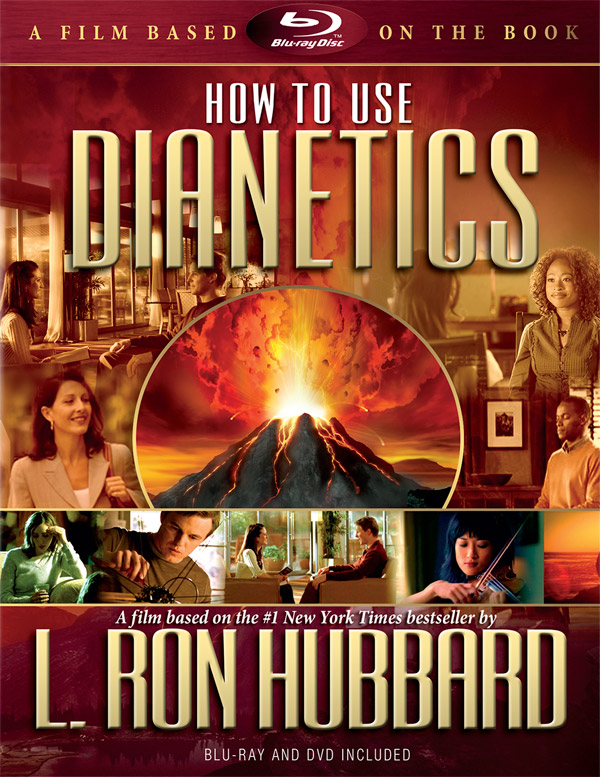The Basic Principles Of Dianetics
The Basic Principles Of Dianetics
Blog Article
Dianetics for Dummies
Table of ContentsThe smart Trick of Dianetics That Nobody is DiscussingThe Greatest Guide To DianeticsThe Main Principles Of Dianetics Dianetics Things To Know Before You Get This
I could not ever not wish to receive anything that enters your mind for you- if it was otherwise, I wouldn't be sitting here with you, doing this. I not just might never ever have a problem, or otherwise intend to listen to something that comes to mind for you, yet I'm entirely excited to know every concept, every thought, every image or sensation that arises or materializes for you- don't ever assume otherwise, and if for some reason you do, please simply let me understand! Sometimes, you may have a thought, and image, concept or case pop up that does not appear to address the concern, or relate to it, however however, constantly do tell me about it, and as we proceed, the significance will arise for you.This is integral in the basis of processing, and the topic of this discussion: the fundamental duties of the counselor and the client: The fundamental role of the therapist is, unlike "common training", not to manage, which suggests to implement and/or inhibit, however to instead work from the basis of EMPOWERING THE CLIENT.

The 2-Minute Rule for Dianetics
John Mcmasters revealed this standard reality splendidly well in one of his lectures on Power processing, where he discusses exactly how he was asked what this "unique propensity" was that he had for giving such wonderful sessions; he needed to consider that for a moment, and identified that it was what he had not been doing, along with what he was doing: he wasn't reviewing, judging, computer, or in fact, generating any type of thoughts, not to mention spoken expressions, after offering the command and while waiting on the computer to complete their solution to their complete satisfaction; he was, simply and only, being existing with the computer, and entirely interested.
The function of the therapist, showed; that was his "special flair". I have actually had my own experience which educated me this well, very at an early stage in the video game. In 1982, having recently finished my training and internship on New Age Dianetics, I was running this on a PC, and there was a point in the session where (being a bit wet behind the ears not yet having many hours under my belt as an expert auditor) the PC seemed to be "taking also lengthy" to share anything verbally after I offered him a command.
This key ended up being one of the most important contribution that John ever before made to the topic of therapy or auditing (Dianetics). In my modest viewpoint, it is the best contribution that any person has ever before made to these subjectsthe application is entirely non-judgemental, non-evaluative, and without any kind of idea, guidance or opinion.no preconditioned schedule for individuals, or 'degrees' that they have to do
In Idenics, the only source of info concerning a client is the private customer. In Scientology we prided ourselves on not assessing for people. All that really indicated was that the my response auditor did not Vocally examine for the PC in session. The registrars and values officers assessed for the PC.
Unknown Facts About Dianetics

Anybody who had ever seen John audit could not aid article source yet discover an unique quality in his bookkeeping."The client's basic function is to be there with the purpose of relocating in the direction of their spiritual goals, and to openly and totally express and experience whatever manifests for them in answering the inquiries and performing the guidelines in the handling.
This is something to procedure as required. However likewise, individuals often have previous experience and/or indoctrination in auditing/processing which, somehow, and to some levels, in fact misinforms them into perspectives, ideas and habits patterns that protect against the complete realization of these roles, therefore they will have a tendency to prevent the expressing of what enters your mind, as in the examples given over. * The initial, and possibly leading instances of mis-indoctrination resulting in much less than totally smooth and reliable sessions, can be found in particular elements of the training regimens, or "TR's":"TR's" are usually an individual's first, or have a peek at this website at the very least early, experience in Scientology, and while I will go on to explain what I view as the defects in idea and method, however, often tend to be substantially therapeutic, done as they are provided (Hubbard insists that "TR's are not refining, they are educating", but factually, they are both handling AND training)
Alan Walter made comparable monitorings, and enhanced on these with his "Visibility Processes". There is no "failing", and no rejection of the fact of this being processing. The focus, as it must be, gets on experiencing the other individual's presence. All the indications which obtain a "fail" in doing "TR-0" are merely the being's initiatives to stand up to the various other person's visibility, and instead of being pestered and nagged with "Flunk", which imposes "failure!" on the being, one just needs to be encouraged to "stick their feet in the water a little much deeper", to increasingly rehabilitate their ability and desire to totally share and experience "being here", or "existence", with others.
The 25-Second Trick For Dianetics

Report this page